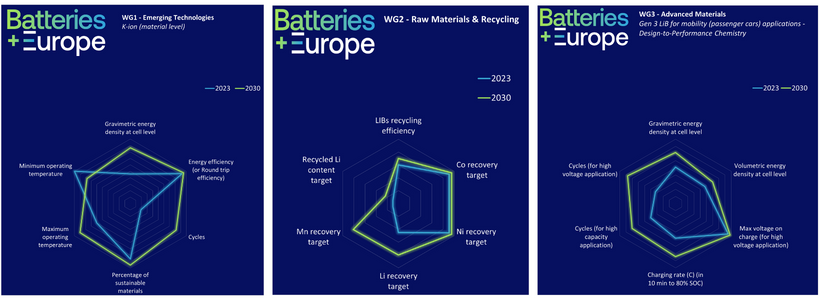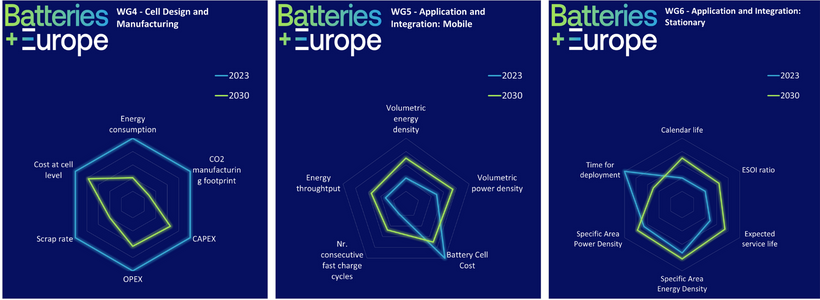
News & events
Batteries Europe launches its KPI benchmarking report to assess the progress on six battery research domains
Batteries Europe initiative has published the Key Performance Indicator Benchmarking and Target KPIs report, composed of a glossary section gathering the most relevant terms per battery value chain segment, complemented with the corresponding KPI values for 2023 and forecasting research progress to 2027, 2030 and 2035.
Batteries Europe (BE) has led this work with the collaboration of the Batteries Europe Partnership Association (BEPA) and the supervision of the Joint Research Centre (JRC) for batteries, bringing the knowledge of experts representing the industry, research and academia. The work has been done within the six working groups set up between BE and BEPA that give a voice to each battery value chain segment: starting with new and emerging technologies (WG1), passing by raw materials and recycling (WG2) and advanced materials (WG3), to dig into cell manufacturing (WG4) and end with final application, both for transport (WG5) and stationary (WG6).


The glossary would facilitate the common understanding of battery-related terms, identifying which are the most relevant ones per segment, while the KPI values would facilitate each individual to benchmark its research and development towards the targets defined by this community, and would feed the European technology roadmaps and Research and Innovation Strategic Agenda (SRIA) for batteries. The roadmap and the SRIA would be the next reports, before starting the cocreation process to draft the research and innovation topics of the coming Horizon Europe’s working program, specifically related to energy and mobility.
The experts had approached to setting the values progressively: 2023, as the baseline for the current state of the art for science, 2027 as it would be the end of ongoing European research projects, 2030 as it would be the end of the second European project’s wave and 2035 as the long-term reference is highly relevant for market-oriented research.
Unifying the voice of basic research and industry representatives has enriched the discussion ending with a report based on the scientific community’s consensus, presented in a comprehensible structure classifying the terms and the KPIs values per battery segment and working group and indicating the boundaries and limitations of this first edition. The European Commission would support two additional editions, expected for September 2023 and May 2024, that would be open to gathering the contributions and revisions of the entire battery community.
Find the report here.

